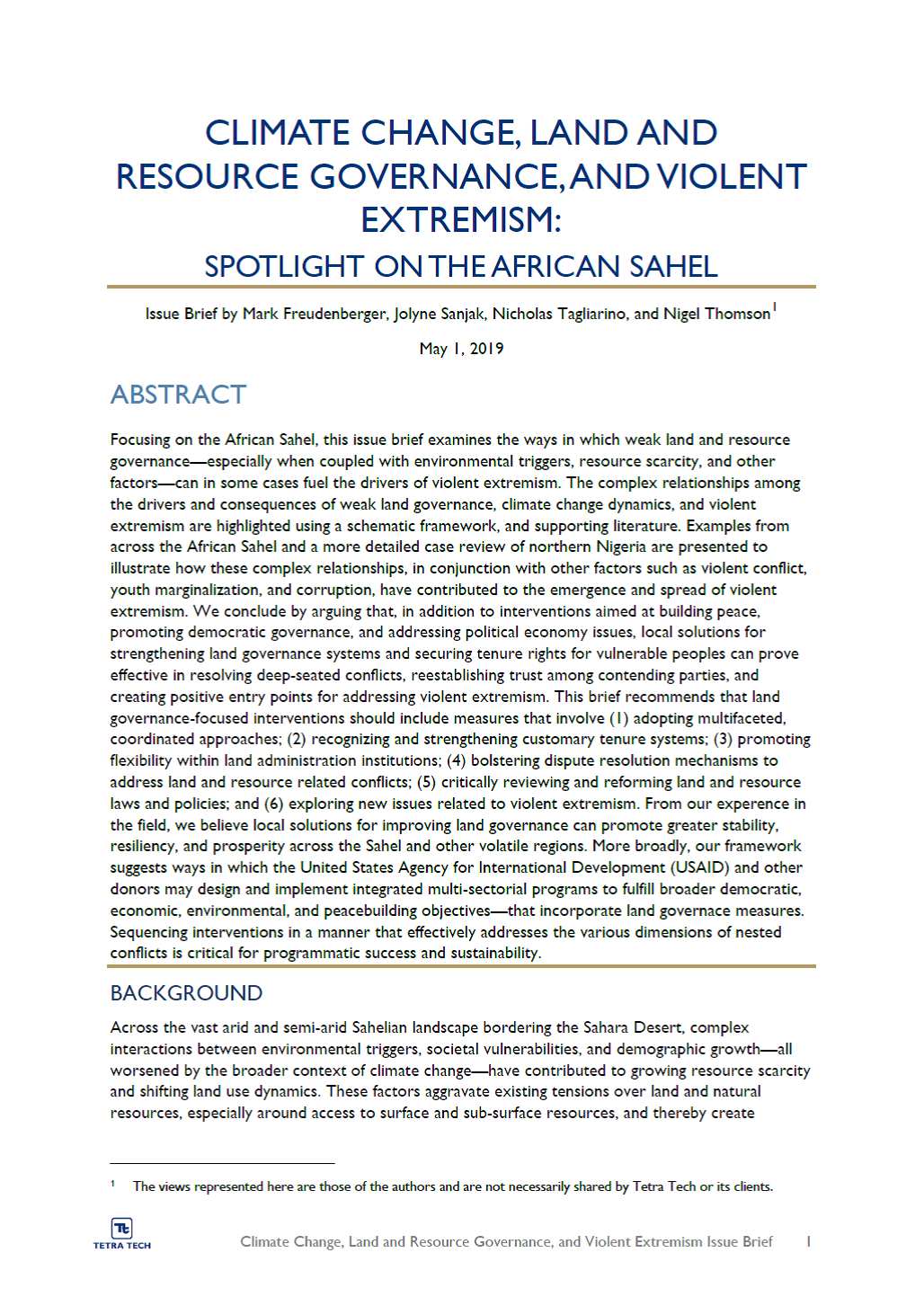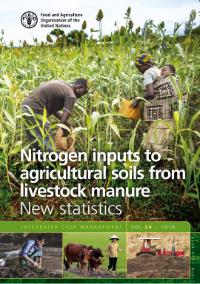Tetra Tech’s land tenure and property rights experts examine how weak land and resource governance can fuel drivers of violent extremism. With a focus on the African Sahel, this new issue brief finds this dynamic is especially prevalent when land and resource governance challenges are coupled…
L’accaparement des terres au Tchad est un phénomène nouveau, massif, et accumulateur visant le contrôle de large partie de terres riches agricoles. Le contexte tchadien correspond plus ou moins aux critères globalement admis pour définir l’accaparement des terres : la taille des emprises, les…
L’accaparement des terres au Tchad est un phénomène nouveau, massif, et accumulateur visant le contrôle de large partie de terres riches agricoles. Le contexte tchadien correspond plus ou moins aux critères globalement admis pour définir l’accaparement des terres : la taille des emprises, les…
The AQUASTAT Programme was initiated with a view to presenting a comprehensive picture of water resources and irrigation in developing countries and providing systematic, upto-date and reliable information on water for agriculture and rural development. This report presents the results of the…
The habitat of tsetse fly (Glossina spp.) depends upon climatic conditions, host availability and land cover characteristics. In this paper, the Land Cover Classification System (LCCS), developed by the Food and Agriculture Organization (FAO) and the United Nations Environment Programme (UNEP…
Este estudio es una contribución más en la tarea de realizar un inventario mundial de experiencias nacionales en el campo de la legislación y administración de aguas. Dado su interés en fomentar la producción agrícola, que requiere un mayor uso consultivo del recurso agua, la FAO se ha ocupado…
The report “Transforming the livestock sector through the sustainable development goals” examines the sector’s interaction with each of the SDGs, as well as the potential synergies, trade-offs, and complex interlinkages involved. The publication is intended to serve as a reference framework for…
Feed and grazing management affect both the quantity and quality of animal manure and consequently nutrient cycling in the mixed crop-livestock systems in West Africa Sahel. Dietary measures can significantly influence the composition of manure and hence it’s agricultural value. High nutrient…
The irrigation process is old and its dynamic has moved towards the promotion of small village irrigated areas where the involvement of producer’s production is more important. The establishment of business management and supervision entities has been a success. But their sustainable operation…
Located in the Guéra region in central Chad, the Mongo Sub-Prefecture is the scene of recurring conflicts related to the occupation and exploitation of the land. While the phenomenon is neither new nor specific to this part of the country, the scale it has taken in recent years makes it a…
The global agricultural sector today faces the double challenge of feeding a growing population while preserving the underlying natural resources of land, water and air. In the meantime, already a third of the world’s soils are degraded. Soil and nutrient management techniques aimed at restoring…








